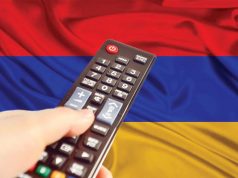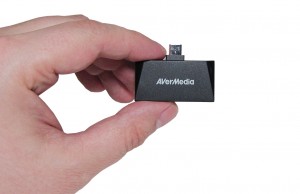During the conference “Days of the Caucasian Cable TV and Media Industry – 2018” held in Tbilisi, Mediasat asked Guram Beruashvili, President of the Cable TV Union of Georgia, who is an indubitable patriarch of cable TV of the Caucasus, to tell us more about the environment on Georgia’s TV market.
Mr. Beruashvili, you were one of the originators of Georgia’s cable TV, tell us how the Georgian TV market was shaped and developed?
In Georgia, particularly in Tbilisi, the groundwork for the cable TV network construction were laid 40 years ago in the severe terrain conditions of Tbilisi and so-called “dead areas” that made it impossible to watch TV broadcasts for 30% of residents. At that time, they were called “multi-broadcast television collective receiving networks”, which broadcasted roughly a dozen of terrestrial and satellite channels. Later on, similar networks were constructed in different cities of the country. The importance of cable TV turned out evident in 1991, when the TV tower was blown up, and the cable television was the only source of information for the society. In the years that followed, the geography, technology, legislation, regulation had been changing.
It was during that period when cable TV attracted broadcasters and politicians. The first ones caught up that without entering cable TV operator’s packages their hopes for gaining popularity and advertising would be vain. The second ones recognized that without cable TV it would be difficult to win elections at any level. The terrestrial broadcasters bought cable TV equipment to put their channels into the cable operators’ packages, paid for broadcasting or provided advertising time. Please note that at that time the law “On Copyright and Associated Rights” had already been passed.
In what way is this market regulated?
In 1999, the Georgian National Communications Commission was established and began to work in 2000. This was a significant step forward. The cable television, which was regulated by the Ministry of Communications, passed under control of that Commission. At the same time, the Cable TV Union of Georgia was set up, which played an important part in the development of Georgia’s telecommunications environment along with the regulatory authority. The Union became an advocate of cable TV operators; and since 2002, it has been distributing TV channels. The Commission had an affiliated public advisory council, which dealt with a number of issues and adopted public decisions. Unfortunately, there is no such a council today, though its operation would be able to prevent from many conflicts. The existence of such a council would be compatible with today’s democratic processes and would enhance confidence in the Commission.
What PPV TV platforms do operate in Georgia?
The very first digital cable TV appeared in Georgia in 2008, and it broadcasted from the DVB-T platform. IP TV, the “killer” of traditional cable TV, started in 2011. It was soon followed by launching DTH-platform.
It’s worth pointing out that all PPV TV platforms are called “transit companies”. Their business activity is “network services”. Hereinafter, I will call them so. Today, 47 transit companies of all platforms have been operating in Georgia. They include 3 IP, 1 DTH, and 3 DVB-T platforms. In terms of the number of subscribers, IPTV ranks first with 58%, DTH platform follows it with 19%, and DVB-T accounts for 15%, while the share of other traditional transit networks is just 7%. Over the past 3 years, 7 transit companies have sold their assets, and 8 have merged. Among all the transit companies, 30 companies have less than 500 subscribers.
Over the past two years, several companies have gone bankrupt, and many companies are on the verge of bankruptcy, and they will turn bankrupt unless the approaches change and the legislative failures and industry regulation are corrected.
Can you highlight the main problems of the industry?
These are dumping, cartel agreements and a monopolies, that is, unequal competition.
Legislative defects (omissions) lead to the pirated distribution of TV channels by unlicensed entities and the depreciation of the national currency.
As for the unequal competition, it is important that large companies would not allow dumping prices and not sponsor the transit of broadcasts from other revenue sources. To do this, the regulatory commission must identify transit companies having substantial market shares and establish special obligations for them. For the time being, the regulatory authority fails doing it.
Tell us about the actual must carry service and applicable Georgia’s laws?
The Law of Georgia on Broadcasting should incorporate the legislative initiative designed by the Cable TV Union of Georgia, which is expected to be considered by the Georgian Parliament in the coming days: along with the mandatory transit (must carry), we also included the mandatory offer (must offer).
The “mandatory transit” (must carry) is expounded as an operator’s liability to put certain TV channel in its cable network.
The “mandatory offer” (must offer) is a broadcaster’s liability to make its signal available to those network operators who want it. Both liabilities serve the interests and demands of the country’s population for free access to diverse information.
Our case is as follows: in 2013, Georgia’s Parliament guided by democracy and pluralism consolidation, made amendments to the law on broadcasting, establishing that cable, i.e. transit companies, were committed to include in their packages all general news broadcasters, so introducing the must carry principle. For some reason, the must carry introduction was missed. The same law established that general news broadcasters were granted the right to demand payments from transit companies for distributing their broadcasts. According to the current amended law, broadcasters are endowed with rights, and operators only with liabilities and this situation restricts real competition in mass media and telecom environment.
In 2017, two holding groups that own six TV channels (Rustavi2, Imedi, Maestro, Comedy Arch, Marao and GDS) decided to take advantage of the above law to demand transit companies to pay and founded an intermediary company, which was empowered to collect payments from transit companies (cable TV). One of the two groups is in opposition to the government, and the second one is loyal. They evidently oppose each other and compete. They signed a cartel agreement to launch a joint attack on transit companies, demanding large sums from them for distributing channels. Later on, having faced a strong resistance, they halved the demanded payments, but the transit companies did not agree to them either. After all, the question is not how much to pay, but why to pay?! And I’m fully on board with them.
TV channels receive funds from advertising according to their popularity, and the ratings are calculated by number of their audience, therefore the role of cable, i.e. transit companies in gaining extra advertising revenue is immense. These two holding groups (only six TV channels) carry out free-to-air and satellite broadcasts, earning 80% of Georgia’s advertising market share. They moved on to get the share from transit companies’ subscriber revenues. After our sharp reaction, they began to maneuver between two transit monopolists and signed agreements with them. Despite the recommendations of the Sector Economy and Economic Policy the Georgina Parliament, directed towards the Communications Commission to resolve the issue in favor of the end customer (subscriber), the Commission failed doing it. Moreover, all transit companies were sanctioned and found administrative offenders.
It turns out that we have to mandatorily distribute their signal, and are not authorized to take away ads. If we cut them off, then a week or one day later, they are empowered to demand their channels’ comeback to the packages of cable TV operators. It makes no sense, and I would call it a racket on behalf of the law; and this racketeering is openly backed by the regulatory commission.
The laws no way should prohibit paid broadcasting, and they do not prohibit it. There are many niche subscription channels (entertainment, sports, kids’, feature films, and others). Today, there are 10 of them, and they broadcast in a closed or encrypted format.
I believe that in 2013, under cover of democracy and pluralism consolidation, there was an attempt to arrange an artificial destruction of cable TV operators in a departure from market competition. The implementation of this plan will result in all transit companies (small and medium businesses) but several monopolists will be eradicated, what will cause high unemployment and inflict a serious damage to customers, since instead of enjoying inexpensive services of small transit operators, the law puts pressure on subscribers to consume expensive general services of several monopolists. This law is aimed not only at expulsion of small and medium transit companies from the market, but also against small and medium broadcasters. This is also an infringement upon subscribers’ interests, because we are forced to raise monthly subscription fees. Today, transit companies are hostages of broadcasters and regulatory authority on the one hand, as well as of subscribers on the other hand.
Georgia and the European Union signed the association agreement proving for Georgia’s introduction of the must carry principle. Therefore, we addressed the European Cable Television Union. We got a detailed reply from that influential institution, and I would like to cite two passages.
“The must carry concept, aimed at protecting of broadcasters from exceeding distributors or network operators’ authority, came under pressure due to some changes in the power balance on the audiovisual market: it is imperative to broadcast certain broadcasters, while distributors (operators) remain unauthorized to refuse their transit. So the issue refers not only to the operators’ mandatory transit liability, but also to the mandatory (free) offer (must offer), which is laid on broadcasters.
The mandatory offer (must offer) can be interpreted as a “mirror image” of the mandatory transit liability: this is an obligation, imposed on broadcasters to make a certain radio or TV channel available to network operators who want to show it.”
Another quotation is: “This law suggests you to buy a product that the viewer is not going to buy” (since TV channels carry out free-to-air broadcasts).
“The ideal situation with revised regulatory standards is when broadcasters are taxed in favor of cable networks for displaying their channels.”
As remarked before, one of the coming days, the Parliament is expected to examine our legislative initiative on introducing must offer. I’m looking forward to the Sector Economy Committee’s support of our justified demands, which will become law.
What actual situation with anti-piracy?
In Georgia, it has reached an unprecedented scale. Previously, our Union more or less successfully combated that problem. Today, due to the Internet development, various schemes and new pirate activities are developing too. They include illegal websites, where one can watch between 250 and 700 channels just for 4 dollars. A so called subscriber pays money, but it is not clear to whom and which company. Pirates are quick in changing accounts, and no one knows where their servers are hosted.
Everyone already has access to the so-called pirated android boxes, which has been gradually replacing cable TV services. This device allows for watching any channel for free or just for 2 or 3 dollars, as well as enjoying high-quality services. It goes without saying about “NTV Plus”, which has the largest subscriber base accounting for several hundred thousand. We are about to file a lawsuit against this company with an international court, since the top-management of “NTV Plus” is involved, according to our information. An annual figure of 14 million lari was mentioned at the last year’s conference in terms of their illegal flow out of the country. The problem has a ripple effect, when large providers try to fight piracy by means of low prices and numerous services that small and medium operators cannot afford. That’s why they are looking for free-to-air channels and revoke contracts. And this affects both the operators’ revenues and distribution, and eventually the TV channels’ owners. It turns out hard to fulfill commitments to the latter, and these commitments have been growing year by year.
Given this fact, the anti-piracy remains in the range of interests of the government, operators, distributors and copyright holders. It is practical to fight this ugly form only by exerting joint efforts. The TV channels are required to delegate more legal powers to dealers, which is used to be unreal to do for many months.
There are problems with large authorized cable operator, which manage to set up companies in an offshore jurisdiction (which are impossible to be identified at all) and present distribution contracts for 250 channels to the regulator. Including those represented in Georgia by our Union. This dealer draws up a contract with another offshore company to distribute these channels, and the latter signs a maintenance agreement with operators. In fact, there are the same individuals behind this scheme. We cooperate both with the regulator and the financial police, but there are no results.
We believe that it is reasonable to toughen the law, form a separate police group with sufficient powers and funding, since the regulator’s monitoring service only accounts for 7 employees, and they definitely cannot address this problem. As far as I know, due to applying this method in Latvia, the number of pirated subscribers has decreased by 20% over the past six months. Therefore, we believe that it is impossible to solve this problem without any government support. Our Union intends to convoke an ordinary congress of providers and invite the relevant government agencies to present our suggestions.

















